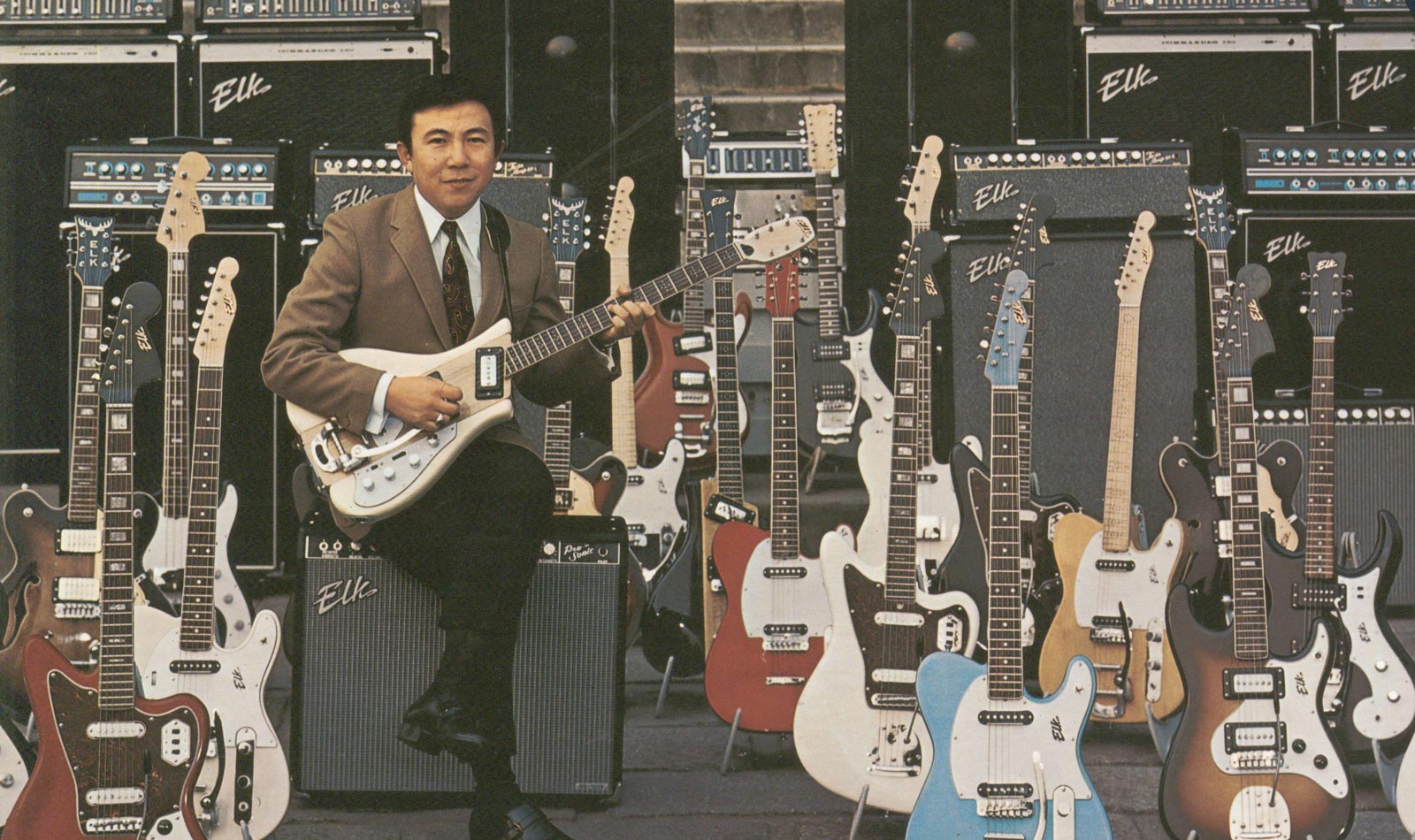
Takeshi Terauchi transformed the image of the electric guitar in Japan during the early 1960s, shifting its perception from a “bad boy” accessory to the central instrument of the decade’s youth culture. His most radical move, however, was showing how the then-new sounds of the guitar melded perfectly with his home country’s rich musical history.
New compilation Eleki Bushi 1966 – 1974 captures this side of Takeshi’s music. Put together by French label 180g, the collection features Takeshi’s dynamic picking approach to the guitar applied to songs inspired by Japan. That includes covers of tunes made on the three-stringed shamisen (“Tsugaru Jongara Bushi”) or original compositions incorporating traditional instruments such as the shakuhachi alongside the roar of his electric guitar (“Rashoumon”).
Though they occupy just a small period of his career, the songs spotlighted on Eleki Bushi underline Takeshi’s inventiveness and adventurous spirit when it came to the electric guitar. Whether by himself or with one of the many bands he led, Takeshi created hundreds of songs centered around the instrument, some being more straightforward surf rock cuts to attempts at seeing if Beethoven could go electric, too. Even as he aged and popular music chased new trends, Takeshi still commanded a loyal following of fans born post-World War II chasing that thrill of youth through six strings. “Takeshi went beyond genre in his music, incorporating elements of Japanese folk songs and classical music,” Tadayoshi Mizukawa, current executive producer of King Label Creative Headquarters, an arm of Japan’s famed King Records, and a close friend of Takeshi’s for 15 years before his death in 2021.

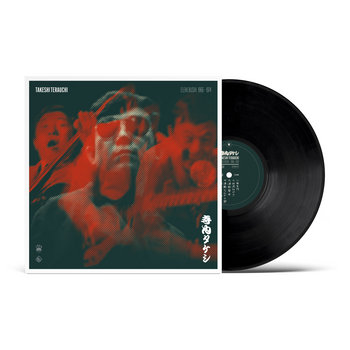
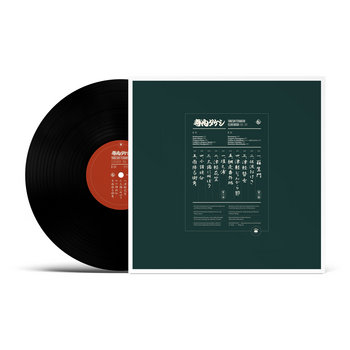
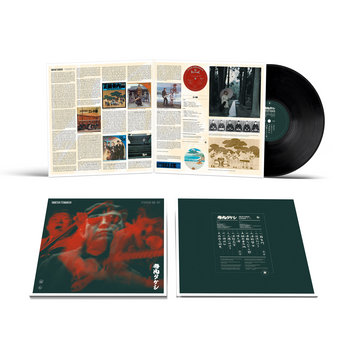
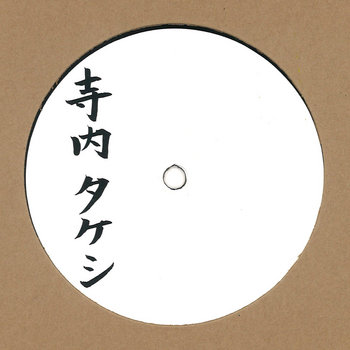

Vinyl LP




“Terauchi in Japan…there’s no need for an introduction,” says Japanese pop culture writer Julien Seveon, who wrote the liner notes for Eleki Bushi. Takeshi was one of the first stars of the country’s post-war “Eleki Boom,” kicked off by American surf-rockers The Ventures touring the country in 1965. That inspired young musicians like Terauchi to pick up the electric guitar, form their own bands (in his case, Takeshi Terauchi and Blue Jeans), and play. He became a star, appearing on TV shows and in movies celebrating this new youth craze.
“At the time Terauchi’s first hit, guitar sales were going up,” Seveon says, adding the phenomena of The Ventures helped, too. “It went from around 1000 guitars sold to 10,000 to over 100,000 in just a couple of years.”


It was traditional Japanese music, though, that had helped shape the young guitarist, who started playing at age five. Born a few hours north of Tokyo in 1939, Takeshi grew up in a household with a father who owned an electronics store, among other ventures, and a mother who taught music, most prominently the traditional shamisen. Thanks to his dad’s profession, Takeshi had access to many spare telephones, from which he took coils out of the receiver to create an ad-hoc microphone. He then hooked his new device up to an air raid siren stereo and generated a much stronger and louder sound for his guitar—so much so that military officials reprimanded his father for the stunt. The ability to play the guitar, however, came from his mom.
“He had a really unique way of playing his guitar, far different from what was happening in the U.S. at the same time, Seveon says. “His mother’s shamisen background led him to strike the chords of the guitar in a way similar to how musicians use the shamisen”—specifically hitting strings harder.
As Takeshi came of age, rock music first started entering Japan via the United States. Takeshi himself played at various U.S. military bases while in college, finding himself joining “country and western” groups popular before the arrival of the “rockabilly boom” in 1958, marked by Elvis-like hairdos and dances imported from America.
“But he wasn’t into that part of it or even what was happening in the U.S., but rather interested in how the instruments were being used at the time,” Seveon says. As the Eleki Boom took off, Takeshi’s natural interest in amplified guitar sound and the playing skills he’d developed since childhood made him a perfect fit for this new wave of rock.




Vinyl LP




Just one problem: adults were freaking out, seeing the electric guitar as a gateway to general societal decay. School boards started banning electric guitars and the instrument gained a delinquent image. Takeshi made it his mission to counter this using the traditional sounds of the country to make a point.
“He rebelled against the ban on electric guitars issued to schools across the country at the time,” Mizukawa says. “He noticed that classical music and Japanese traditional music were given preferential treatment at school parties and events, so he looked into that more musically.”
The songs on Eleki Bushi are part protest, a snapshot of Takeshi taking music deemed “fine” for kids and running wild all over it. Yet it’s also an effort to show the electric guitar as not being that much different than the traditional sounds he grew up on. “He respected ancient Japanese traditions, and it seems that the music was created as a deep tribute to his mother,” Mizukawa says.

They also offer the most unique vantage point of Takeshi’s guitar skills while underlining the originality present in the country during the decade. “Try to find some other band or musician playing like him—channeling Japanese sounds and striking the chords the way he did—in the U.S. or UK or anywhere in the West. You won’t,” Seveon says, adding he wants Eleki Bushi to open minds of people who imagine the best guitarists of the 1960s all hailing from the West, and expand the canon so that the greater world so artists like Takeshi can get his due.
Takeshi continued to rack up accomplishments in the decades after rising to prominence, from scoring hits at home to being one of the first Japanese artists to ever tour the Soviet Union—and doing it multiple times. He stayed curious and focused on music too, even into the 21st century. “He was a musical craftsman,” Mizukawa recalls, detailing how Takeshi would always handwrite the scores to his songs before recording. “I will never forget the pride and joy on his face, and the grin when he handed it to me.”
Perhaps Takeshi would be happiest to hear that the electric guitar, once demonized, has become as central to modern Japanese music as the shamisen was to traditional folk tunes. The tracks included on Eleki Bushi demonstrated how the instrument wasn’t a threat, but rather capable of a sound complementary to Japan’s musical traditions.
“Terauchi made these songs based on his roots with the hope they would transcend region and time,” Mizukawa says. “I can just picture the big grin on his face.”








